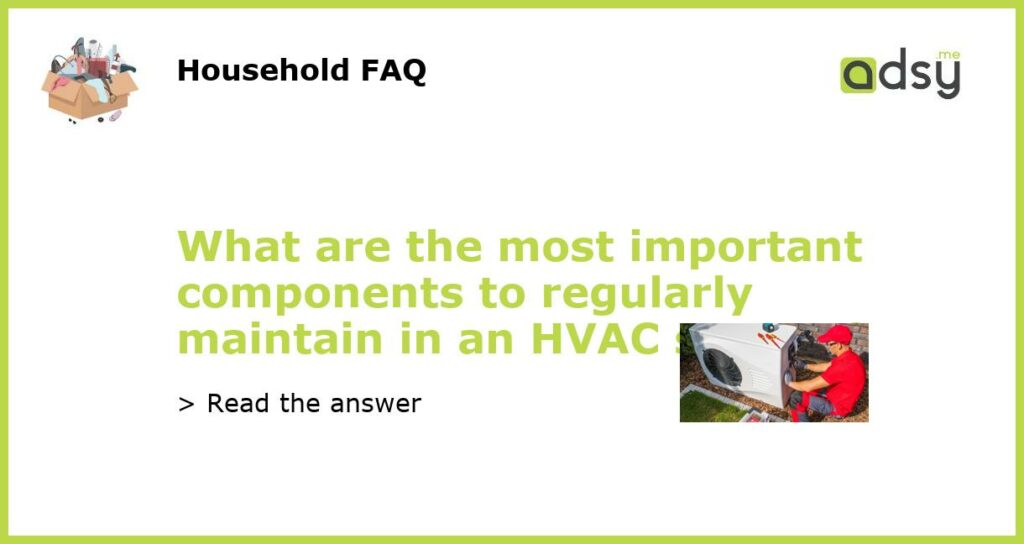The importance of regular maintenance for HVAC systems
Regular maintenance is crucial to ensure the optimal performance and longevity of an HVAC (Heating, Ventilation, and Air Conditioning) system. By properly maintaining the various components of an HVAC system, homeowners can avoid costly repairs, enhance energy efficiency, improve indoor air quality, and extend the lifespan of the system. This article will outline the most important components to regularly maintain in an HVAC system.
Air filters
The air filters in an HVAC system play a vital role in improving indoor air quality by capturing dust, pollen, and other airborne contaminants. Over time, these filters can become clogged, reducing airflow and causing the system to work harder to heat or cool the air. Regularly changing or cleaning the air filters, typically once every three months, can prevent these issues and improve overall system performance. Homeowners should consult the manufacturer’s guidelines or seek professional advice to determine the appropriate filter type and maintenance schedule for their HVAC system.
Coils and fins
The coils and fins in an HVAC system are responsible for heat transfer. Over time, they can accumulate dirt, dust, and debris, inhibiting this transfer and reducing system efficiency. Regularly cleaning the coils and fins, typically once a year, can help optimize energy efficiency and prevent potential breakdowns. It is important to follow manufacturer guidelines to ensure proper cleaning techniques and avoid damaging these delicate components.
Refrigerant levels
Refrigerant is a crucial component in the cooling process of an HVAC system. Over time, refrigerant levels can decline due to leaks or other issues, decreasing system performance and potentially causing damage to the compressor. Regularly checking and maintaining proper refrigerant levels can help ensure optimal cooling performance and prevent costly repairs. It is important to note that refrigerant handling requires specialized knowledge and equipment, so it is recommended to hire a professional HVAC technician for this task.
Ductwork
The ductwork in an HVAC system is responsible for distributing heated or cooled air throughout the home. Over time, air leaks, improper insulation, and blockages can occur within the ductwork, reducing the system’s overall efficiency. Regularly inspecting and maintaining the ductwork, including sealing leaks, insulating exposed areas, and clearing any blockages, can help improve energy efficiency and ensure consistent airflow throughout the home.
Electrical connections
The electrical connections in an HVAC system can loosen or corrode over time, potentially causing system malfunctions or safety hazards. Regularly inspecting and tightening electrical connections, along with checking voltage and current levels, can help prevent these issues and ensure the system operates safely and efficiently. However, it is important to exercise caution when working with electricity and consult a professional if unsure of how to perform these tasks.

